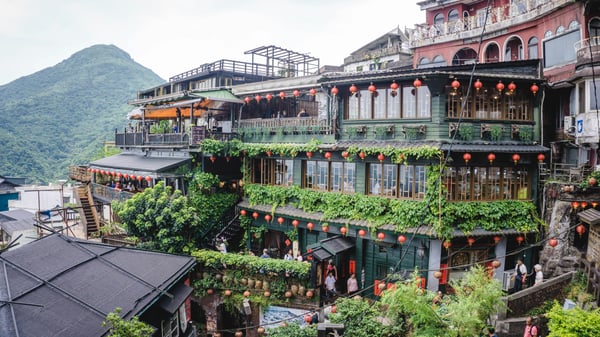The Taiwan Carbon Exchange (TCX) is set to market carbon credits generated by a blue carbon...
Navigating the Blue Horizon: Taiwan's Ambitious Leap into Blue Carbon Conservation
In an era where the search for sustainable solutions to climate change is more critical than ever, Taiwan has boldly stepped forward with an ambitious vision that underscores the potential of blue carbon ecosystems. With a strategic focus on coastal ecosystems such as mangroves, seagrass meadows, and tidal marshes, Taiwan is not only aiming to safeguard these natural treasures but also to harness their carbon sequestration capabilities to combat climate change. This initiative not only highlights the importance of blue carbon in the global carbon cycle but also positions Taiwan as a frontrunner in the development of a sustainable blue carbon market.
The Essence of Blue Carbon
Blue carbon ecosystems are integral to the environmental and economic wellbeing of coastal regions. These ecosystems provide critical services, including coastal protection, nursery grounds for marine life, and water purification, in addition to their role as significant carbon sinks. Blue carbon refers to the carbon captured by the world's oceanic and coastal ecosystems, with blue carbon ecosystems (BCEs) playing a pivotal role in mitigating climate change by absorbing atmospheric CO2.
Recognizing the untapped potential of blue carbon, Taiwan has embarked on a journey to significantly enhance its coastal ecosystems' carbon sequestration capacity. This endeavor not only aims at ecological resilience but also at fostering economic growth through the sustainable utilization of blue carbon.
Setting a New Benchmark
Taiwan's current blue carbon reserves are impressive, boasting 350,000 tons of carbon storage, which notably surpasses its terrestrial forest carbon reserves. Given the efficiency of mangrove ecosystems in carbon offsetting—estimated to be 2.5 times greater than their terrestrial counterparts—Taiwan's geographical advantage is a boon to its blue carbon ambitions.
With the goal of doubling its blue carbon reserves to 700K tons by 2030, Taiwan is not merely setting a target but is paving the way for intensified conservation and restoration efforts. This bold target is backed by the resilience and stability of blue carbon ecosystems, which, unlike forest lands, are less susceptible to threats such as illegal deforestation and wildfires.
A Collaborative Venture for Oceanic Preservation
The formation of the Taiwan Ocean Union, in alignment with the United Nations Decade of Ocean Science for Sustainable Development (2021-2030), marks a significant step in fostering collaboration across sectors to conserve and develop Taiwan's marine ecosystems. By focusing on key domains such as blue carbon ecosystem conservation, marine environmental sustainability, and the advancement of marine observation technology, Taiwan is building a comprehensive approach to oceanic preservation.
Innovations in Algae Cultivation
Taiwan is exploring the frontiers of blue carbon through innovative technologies like microalgae cultivation for carbon sequestration. This approach not only addresses carbon dioxide removal (CDR) but also opens avenues for renewable energy sources through microalgae-derived biofuels. Such initiatives underscore Taiwan's commitment to environmental stewardship and renewable energy, demonstrating a multifaceted strategy towards climate mitigation.
Towards a Greener Future
With the Ocean Affairs Council's efforts to finalize the "Blue Carbon Methodology" for native ecosystems, Taiwan is laying the groundwork for standardized measurement and enhancement of blue carbon sequestration. This, coupled with the country's comprehensive action plan to achieve net-zero emissions by 2050, showcases Taiwan's dedication to a sustainable future.
Taiwan's endeavor to expand its blue carbon reserves to 700K tons by 2030 is more than an ambitious target; it's a testament to the potential of blue carbon ecosystems in the global fight against climate change. Through strategic partnerships, innovative technologies, and a commitment to environmental stewardship, Taiwan is not just navigating the blue horizon but is actively shaping a sustainable future for the planet.






